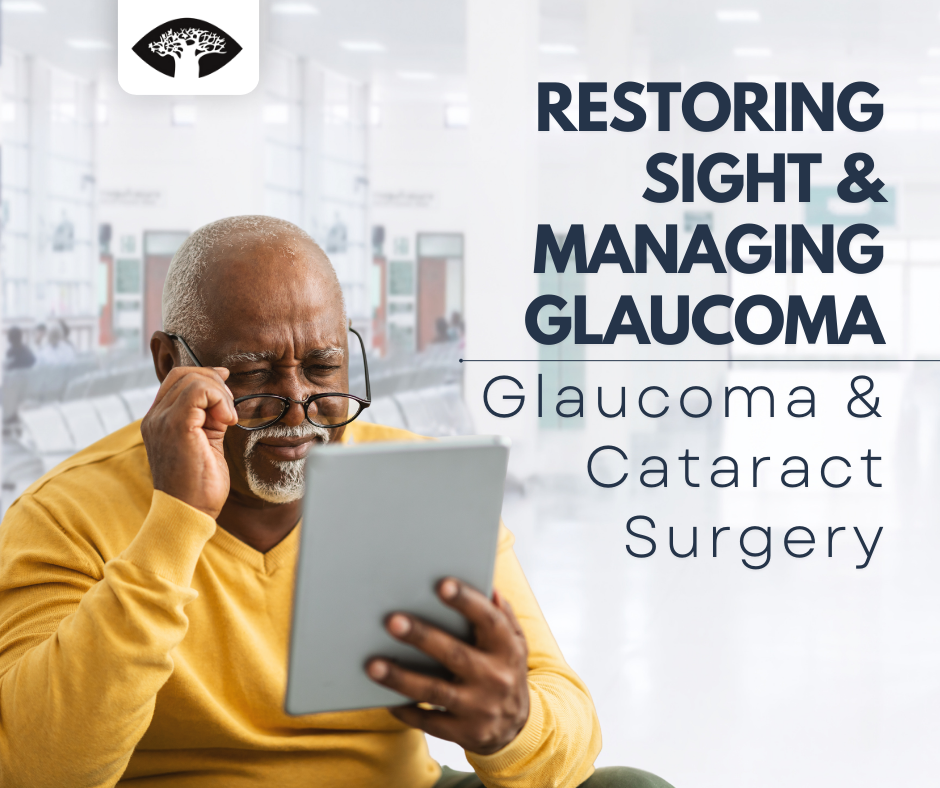
Understanding Cataracts and Glaucoma
Cataract surgery is a common and highly successful procedure that can help improve vision and quality of life for those suffering from cataracts. However, for those who also have glaucoma, the decision to undergo cataract surgery can be a bit more complicated. In this article, we will explore the potential risks and benefits of cataract surgery for individuals with glaucoma, as well as the important considerations that should be made before making a decision.
Cataracts and Glaucoma: Common but Different Conditions
First, it is important to understand what cataracts and glaucoma are. A cataract is a clouding of the natural lens in the eye, which can cause blurry vision, difficulty seeing at night, and sensitivity to glare. Glaucoma is a group of eye diseases that damage the optic nerve, which can lead to vision loss and blindness. Both conditions are more common as we age, and they can occur together.
Watch the video below to learn more about cataracts:
View VideoWatch the video below to learn more about glaucoma:
View VideoCataract Surgery for Individuals with Glaucoma: Risks and Benefits
Cataract surgery involves removing the cloudy natural lens and replacing it with an artificial lens, called an intraocular lens (IOL). This can greatly improve vision and quality of life for those with cataracts. However, for those with glaucoma, there are a few important considerations to take into account.
Potential for Increased Eye Pressure
The first consideration is the potential for increased eye pressure after cataract surgery. Glaucoma is often treated with medications and/or surgery to lower eye pressure and protect the optic nerve. However, cataract surgery can sometimes temporarily increase eye pressure, which can be a concern for those with glaucoma. This is why it is important for individuals with glaucoma to be closely monitored by their ophthalmologist before and after cataract surgery to ensure that their eye pressure stays within a safe range.
Types of Intraocular Lenses (IOLs)
Another consideration is the type of IOL that is used during cataract surgery. Traditional IOLs are monofocal, meaning they only correct for one distance (usually distance vision). However, for those with glaucoma, there are newer IOLs available that can also correct for near vision, which can be helpful in reducing the need for glasses after surgery. These are called multifocal IOLs.
Watch the video below to learn more about the various IOL options:
View VideoCataract Surgery is not a Treatment for Glaucoma
It is also important to note that cataract surgery is not a treatment for glaucoma, but it can make glaucoma management more challenging. In some cases, individuals with glaucoma may require additional glaucoma treatments after cataract surgery, such as laser surgery or additional medications.
Benefits of Improved Vision and Quality of Life
Despite these considerations, for many individuals with glaucoma, the benefits of cataract surgery can outweigh the risks. Improved vision and quality of life can be a significant benefit for those with cataracts, and for many individuals, the risks of increased eye pressure and the need for additional glaucoma treatments can be managed effectively.
Watch the video below to learn more about the benefits of cataract surgery.
View VideoTalking to Your Ophthalmologist about Cataract Surgery and Glaucoma
In conclusion, cataract surgery can be a highly successful procedure for those suffering from cataracts, but for those with glaucoma, it is important to take into account the potential risks and benefits before making a decision. Close monitoring by an ophthalmologist, careful selection of an IOL, and a thorough understanding of the potential risks and benefits can help ensure a positive outcome. If you are considering cataract surgery and have glaucoma, it is important to talk to your ophthalmologist about your specific situation and what options may be best for you.

